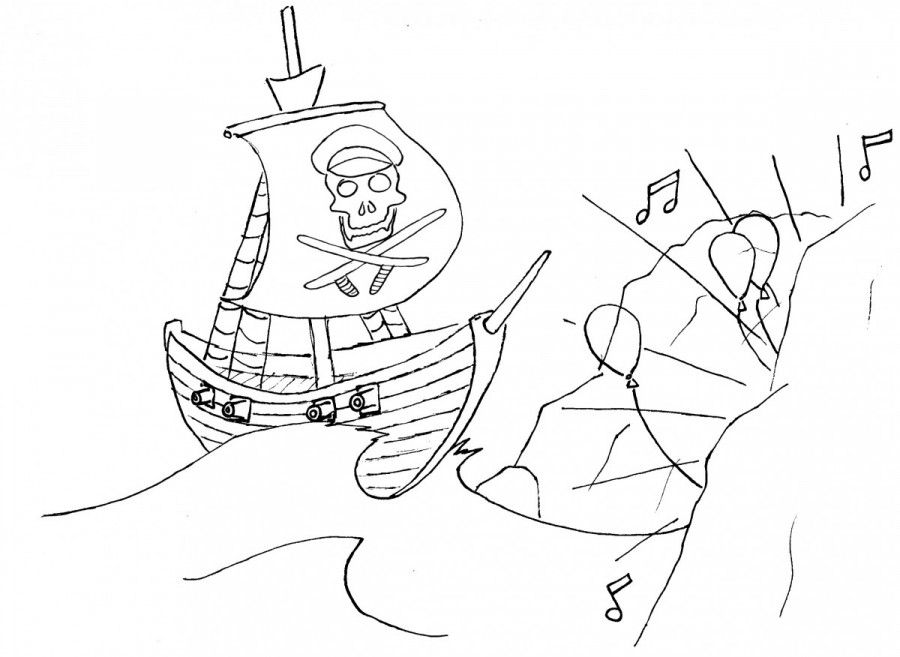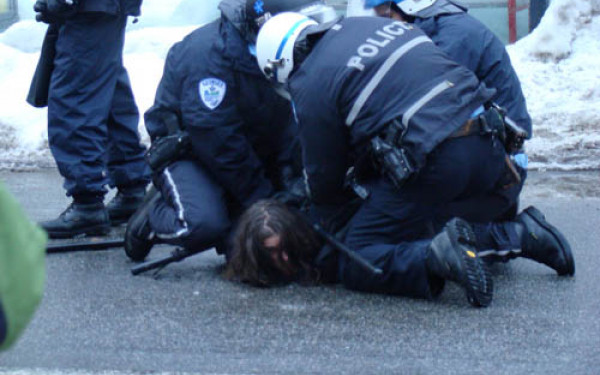The Sinking of the Friend Ship
Montreal’s Favourite Secret is Over and Out
Tucked away in the heart of Griffintown, up an iron spiral flight of stairs, overlooking the city’s once thriving industrial neighborhood is Friendship Cove. The venue has hosted hundreds of concerts, countless memorable evenings and served as a launching pad for bands emerging in Montreal’s independent music scene.
But Friendship Cove is toast.
The Friendship Cove has played an integral role in the Montreal music scene over the past five years. Local success acts such as Miracle Fortress and Think About Life practiced and played their first shows in the space.
A pay what you can entrance fee often got you into a gem of a place so full of charm and character you could spend hours exploring the little trinkets and secret rooms of the two-story building. It wasn’t just a venue, but a home to friends, a jam space for musicians and a recording studio.
In July, police raided the venue.
“The police showed up and they basically said that they knew what was going on and they knew what was going on for awhile,” explained Arin-Ray Gintowt, resident of Friendship Cove for three years.
“They wanted to fine me $1,000 per person in the venue. There were a couple hundred people in the venue that night,” he said.
Gintowt was told he and his roommates would be evicted if they ever hosted another show.
Five years ago, visual artist Jack Dylan and musician Graham Van Pelt (Think About Life, Miracle Fortress) founded Friendship Cove.
“[Dylan and Van Pelt] did more of an indie pop, dance pop, folk type-thing,” explained Gintowt. “When I took over [Friendship Cove] the tastes of Montreal’s music scene were changing. Indie pop was popular; it wasn’t so underground anymore. So when I took over I started booking a lot more punk, hardcore and noise shows.”
Gintowt explained his motto for booking shows was to keep in mind the types of music other Montreal venues weren’t focusing on.
Roommate Kieran Blake explained Friendship Cove as being a necessary venue for fringe bands.
“It would usually be a PWYC deal at the door, and you brought your own drinks. So it was a venue. I think it’s very important that there are music venues that aren’t bars; bars cost money and they close at three.”
Gintowt ran recording label Campaign For Infinity with fellow roommate Brett Wagg out of Friendship Cove. Local bands such as Pink Noise and Ultrathin were in the process of recording there. The label has released a slew of important local albums. Unfortunately, all of this has come to an abrupt halt.
“It really sucks,” Gintowt said. “I don’t think there is anyone that is happy about it.”
Gintowt may be referring to the impressive 1,065 Facebook group members the venue has attracted.
“It was a community, [Friendship Cove’s] residents were musicians or artists, so the space was important for rehearsing and creating, as well as performing,” said Blake. “I don’t think the [Friendship Cove] guys believed in much besides providing a space to showcase bands they loved, their friends’ bands and their own bands. They really got behind the acts they put on and that’s all that really mattered.”
Now that the residents of Friendship Cove are forbidden to do shows they are moving out. Gintowt is not optimistic about another Friendship Cove starting up in an alternative location.
Gintowt gets melancholic when asked about his favourite memories. “So many people have had great times here and that’s why I ran the place. People would come up to me at a show and be like ‘man, this is your place? Thank you so much for doing this.’ And even if I had been having a bad night because people were breaking bottles, it was all worth it.
“I think it affected people really positively,” he added.
Gintowt reminisces on times in winter when him and his roommates would run out into the cold to steal pallet wood for their wood stove because they were freezing.
“It’s all the little secrets, the stuff the public didn’t get to see,” Gintowt said. “Those are my favourite memories.”
This article originally appeared in Volume 31, Issue 02, published August 24, 2010.





__600_375_90_s_c1.jpg)
__600_375_90_s_c1.jpg)
